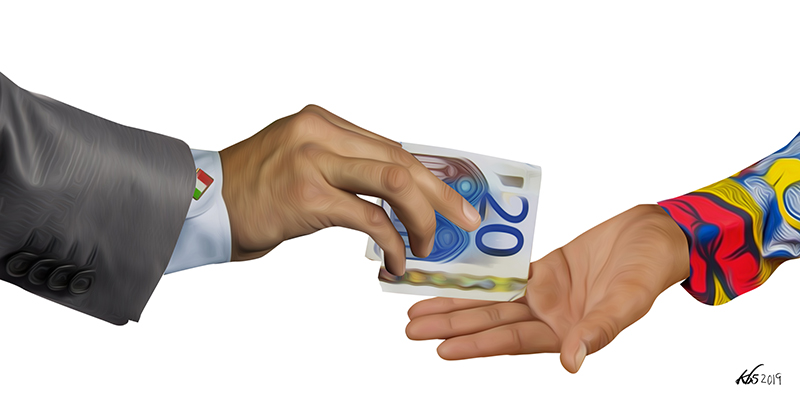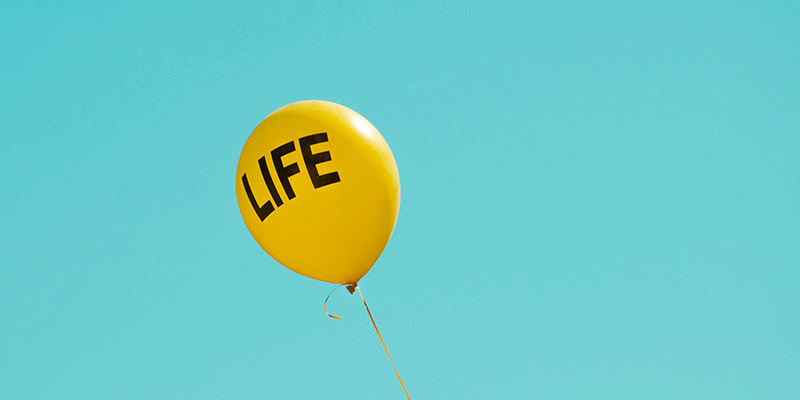On 26th May, the European Union (EU)’s citizens voted for the Members of Parliament at the EU’s Commission in Brussels. This election took place during one of the hardest challenges facing the European dream of unity. National interests were clearly overshadowing any community spirit, if it ever existed.
Along with the wave of populists and Euro-sceptic movements from the far right, the election also came when a new no-holds-barred attitude among European Member States for primacy in African countries. The vote and the persistent instability in some key African countries has resulted in a lawless diplomatic fight to be the key player in these countries.
The rush for Libya
Marshall Khalifa Haftar was a nobody in terms of political leadership. Groomed as Muhammar Ghaddafi’s lieutenant, he was only considered as a capable military man, period. But he became much more than that. In 2014 he launched Operation Dignity by gathering forces in Eastern Libya fed up with the government in Tripoli, which they perceived as remote and corrupt. (Libya has never really been united. Only a dictator like Ghaddafi could keep the country together.) But since that military operation, there has been a clear rivalry between the UN-backed government in Tripoli and the rebel Libyan National Army in Benghazi. Haftar since then has had the ambition to be the strongman able to re-unify his country.
Officially, the EU has always only supported Fajez al-Serraj, the man in charge in Tripoli and chief of the Government of National Accord (GNA). Nevertheless, some years ago something started to change inside European chancelleries. As a matter of fact, despite his settlement in 2015, Serraj has never been able so far to guarantee security in Libya. He has never been commander in chief of an army, but always forced to deal with militias to whom he provided a cause and a salary.
It was after the kidnapping of his deputy, Fathi al-Majbri (who then quit the GNA), that European countries also started negotiations with the “bad guy” Haftar. France was first in line because Italy – its rival in the Mediterranean Sea – had an advantage until then. The Italian diplomats negotiated strongly in support of the UN-backed government and during the summer of 2017, as broadly reported on worldwide media, the Interior Ministry signed a Memorandum of Understanding in support of a group of militias in Western Libya.
In the beginning of April, Khalifa Haftar started his military campaign in Libya. Before that date, his emissaries went to pay a visit first to France (on 4th April) and then to Italy (on 6th April). According to the Italian publication La Repubblica, Saddam Haftar, Marshall Khalifa Haftar’s son, was negotiating the military offensive. This fact has been denied by the French presidential staff. Nevertheless, in mid-April the Tripoli-based government accused France of supporting Haftar and issued an arrest warrant for the Field Marshall.
It was after the kidnapping of his deputy, Fathi al-Majbri (who then quit the GNA), that European countries also started negotiations with the “bad guy” Haftar. France was first in line because Italy – its rival in the Mediterranean Sea – had an advantage until then.
The conflict is far from heading towards a conclusion. On the contrary, it seems to be turning into an endless conflict. On the ground, Haftar hasn’t won as easily as expected. His own army wasn’t ready for the offensive. He obtained partial victory more because of the reluctance of his enemies to fight rather than because of his strength. The international support to the competitor will be crucial for the final outcome.
On the diplomatic side, France rejected the European Parliament’s resolution to ask Haftar to stop the offensive. Who gave the green light to Haftar for the offensive? His sponsors outside Europe are clear that his supporters were Russia, Egypt, Turkey, UAE and Qatar. It seems likely that France was giving its support too.
Upon rewinding the tape of history, it becomes clear that there has been a strong rivalry between Italy and France to gain the friendship of Tripoli since the Ghaddafi era. Libya is historically closer to Italy: Libya is Italy’s former colony and since the 1970s it has been the second home of Eni, the Italian oil and gas giant.
Under Silvio Berlusconi’s administration, in 2008 Italy signed a Memorandum of Understanding in order to obtain long-term licences to exploit oil and gas, public infrastructures tenders and a shared management for a border control system, partially quoted in the latest MoU signed in 2017. The military operation that helped rebels to topple Ghaddfi was launched in 2011 with the codename Odissey Dawn. It was led by the United States and backed by Europe, mainly by Nicholas Sarkozy, the French president at the time.
France’s failures in the Sahel
In 2015 the European Commission introduced the Agenda on Migration, a guideline to deal with the migration crisis at the EU level. Emerging hot zones were spotted in the Sahel region, a key transit point for migrants coming from all over Africa towards Libya. The Agenda on Migration in 2016 has been expanded through a financial tool called the Europe Africa Trust Fund (EUTF), an emergency fund of 1.3 billion euros co-financed by EU Member States and available for projects aimed at tackling the root causes of illegal migration. Sahel and Libya were the main targeted areas. If Libya was under Italian influence, the Sahel region was under the French.
Upon rewinding the tape of history, it becomes clear that there has been a strong rivalry between Italy and France to gain the friendship of Tripoli since the Ghaddafi era. Libya is historically closer to Italy: Libya is Italy’s former colony and since the 1970s it has been the second home of Eni, the Italian oil and gas giant.
The latest example of this occurred in May when French intervention on the ground in the Sahel supported Idriss Déby, the general leading Chad – a dinosaur in power since 1990 who is being challenged by his own nephew, Thimane Erdimi. The latter’s Union des Forces de la Résistance (UFR) were struck by French air forces. Even while challenged and ruling as a dictator, Déby remains a close friend of Paris, one of the pieces of the puzzle to maintain “stability” in the region.
As in Libya, Italy’s influence in Chad has been challenged. In 2018, Italy set up an embassy in Niamey and sent its first military-support mission on the ground with the purpose of training the local border guards. Italy is also expanding its presence through funds coming from the EUTF, especially in the field of training and capacity building.
Just as Italy lost its influence because of its diplomatic mistakes in Libya, France is going through similar problems in Mali. France supported the establishment of a regional group called G5 Sahel where Burkina Faso, Chad, Mali, Mauritania and Niger are seated. The results so far are not promising. The region is still unstable and the regional group doesn’t seem capable of defeating Islamist militias in the country.
In France, one of the magazines focused on Africa, Afrique Contemporaine, was expected to publish articles on Mali and its security problems in its March issue. But the magazine, published by the French Agency for Development (AFD), was censored by the same AFD. This is the accusation tweeted on 22 March by Bruno Charbonneau, the Canadian director of the Centre FrancoPaix and the editorial coordinator of this particular issue: “For those interested in #France in #Africa #Mali #Sahel, note the censorship that we experienced during the scientific process of publishing our special issue on Mali in a French journal #Afriquecontemporaine. It will tell you much about French knowledge production about Africa.” The day before, the scientific director, Marc-Antoine Pérouse de Montclos, resigned because despite the fact-checking done by his team, the AFD had decided not to publish the issue.
For the academic world, this was a small earthquake. The reason for such hostility from the French agency, according to an interview released by Pérouse de Montclos to the French publication La Croix, was because the researchers had exposed the failures of France in Mali – a fact that could have contributed to the reduced role of France in the region, perhaps with an advantage for Italy. Among the failures, the researchers highlighted the lack of military successes of Operation Barkhane launched by France in 2014, and the activities led by terrorist groups affiliated to Al Qaeda. “Francafrique is not dead” was the final comment most read on the tweets about this story.
The dams scam in Kenya
The latest case is in Kenya, where Italy got important public bids in 2015 when Matteo Renzi was the Prime Minister. Renzi had in Kenyan President Uhuru Kenyatta a close ally. Renzi needed support for his diplomatic strategy in the Horn of Africa. He needed a strong ally in order to persuade the other countries of the region to implement migration policies to prevent new migration. In order to achieve this, Renzi went to Nairobi to provide technical support towards crucial infrastructure public works promised by Kenyatta during his electoral campaign.
For the academic world, this was a small earthquake. The reason for such hostility from the French agency…was because the researchers had exposed the failures of France in Mali – a fact that could have contributed to the reduced role of France in the region, perhaps with an advantage for Italy.
Among the grantees there was CMC Ravenna, the infamous company involved in the alleged bribes paid to Kenyan ministers in order to win the bid. The story since March has hit the headlines in the Kenyan media. The case is still ongoing and the number of companies mentioned has increased to a dozen.
Who tried to take advantage of this crisis between Italy and Kenya? Emmanuel Macron. The French president went to Djibouti, Ethiopia and Kenya between 11th and 14th March. In all these countries, Italy is a key European partner. In Djibouti, Italy has his own naval base, in Ethiopia there is a long story of cultural exchange, and in Kenya there was a privileged relationship with Uhuru Kenyatta.
Macron’s visit was the first taken by a French president since Kenya’s independence. Once again the pay-off for diplomacy was public tenders. A French joint-venture led by Vinci had been awarded the bid for the construction of the Nairobi–Nakuru–Mau Summit highway. The battle for the bid has already moved to court, where the other competitors have filed a complaint. During his Kenya tour, Macron also obtained tenders for the energy company Volitalia and for the defence and surveillance Airbus.
Italy and France’s diplomatic efforts in African countries, it seems, always come with bids attached.







